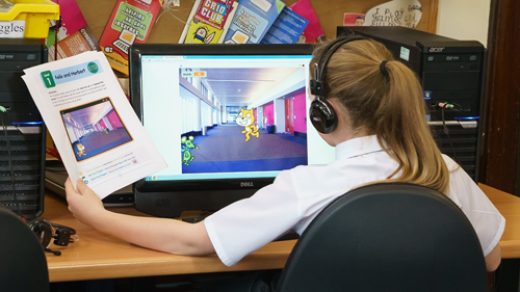Supporting children’s reading outside of school could lead to £4.6 billion boost to UK’s GDP

New research by WPI Strategy for British Land and the National Literacy Trust demonstrates the economic value of reading for pleasure for the first time.
If all school-age children in the UK read for pleasure every day, WPI modelling shows the number getting five good GCSEs by the age of 16 could increase by 1.1 million within 30 years. Using Department for Education research that looks at GCSE results, productivity and higher earnings, WPI found that this would boost their average lifetime earning potential by £57,500.
What’s more, the analysis shows that after 30 years, this reading for pleasure shift could add as much as £4.6 billion a year to the UK’s GDP.
The research was commissioned to celebrate the 10-year anniversary of British Land’s partnership with the National Literacy Trust.
Over the last decade, the property company has supported the charity’s Young Readers Programme, inspired over 55,000 children from the UK’s most disadvantaged communities to engage in reading and helped distribute over 167,000 books.

After recording the lowest level of reading enjoyment (47.8%) for 15 years in 2020, the National Literacy Trust reported a small increase in enjoyment levels in 2021, with 1 in 2 (51.5%) enjoying reading.
The latest research from the charity shows just 3 in 10 (30.1%) of children and young people read something outside of school every day – showing the considerable gap between the current state of the nation and the almost daily reading required to reach WPI modelling estimates.
Simon Carter, chief executive of British Land said: “Today’s research shows how we all stand to gain from nurturing our youngest generation’s learning and literacy. Our partnership with the National Literacy Trust is the longest partnership between a business and a charity to improve literacy in the UK, and is testament to how collaboration between charities, businesses and communities can transform educational outcomes.
“We hope the report inspires many more cross-sector partnerships that unlock the tremendous potential of reading for pleasure – now we have clear evidence of how it can improve children’s life chances, earnings and the overall GDP of the country.”
Jonathan Douglas CBE, chief executive of the National Literacy Trust said: “At the National Literacy Trust, we have always known that reading for pleasure changes lives. Now, for the first time, we can see the significant economic impact of supporting a love of books outside of the classroom.
“Unfortunately, there are so many barriers that prevent children from developing a motivation to read – including access to reading materials, confidence, and children never connecting with a book.
“Collaborations between the charity and corporate sector are key to supporting initiatives that encourage positive reading behaviours. We are so grateful for British Land’s support over the last ten years and look forward to reaching many more milestones together.”
To read more about the British Land report, The power of reading for pleasure, please visit: http://www.britishland.com/NLT




